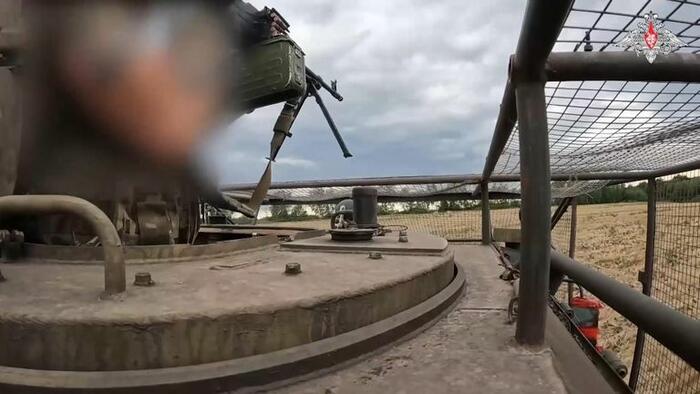This week, Ukrainian officials issued a cautionary alert to their Western allies, revealing the presence of approximately 50,000 Russian troops stationed in the Kursk province. Since a daring cross-border military operation commenced in early August, Ukrainian forces have successfully maintained control over a significant area of Russian territory. Initially, Kyiv had anticipated that Russia would redirect substantial troops from the ongoing conflict in the Donbass region to bolster their defenses in Kursk. However, the Kremlin’s decision to keep their forces in place suggests a calculated strategy, allowing for a potential strong counter-offensive to reclaim the territory occupied by Ukrainian forces. President Volodymyr Zelensky confirmed the challenges posed by the Russian military, affirming that Ukrainian troops are engaged in holding their positions against this formidable enemy presence.
As the situation develops, there is mounting concern regarding the resources Russia is deploying to retake the significant loss in Kursk. Reportedly, elements of a battalion-sized Russian force were involved in previous confrontations, with Ukrainian officials stating that they successfully repelled initial Russian assaults. Nevertheless, with the sheer number of troops involved and the fighting taking place within Russian territory, the viability of Ukraine’s operations in this area appears to be waning. There is an urgent sense that the duration of Ukraine’s continued hold will be tested, with local Ukrainian commanders expressing a sense of urgency and caution in their evaluations of the unfolding battle dynamics.
In addition to their own troop movements, Russian military activity may be bolstered by an unusual partnership with North Korea. Recent reports suggest that North Korean troops, now numbering around 11,000, have been deployed to assist in combat operations directed at reclaiming control of occupied territories in Kursk and nearby Belgorod. Both Ukrainian and American officials have raised alarms about the involvement of North Korean forces, asserting that their presence complicates an already tense military landscape and escalates the stakes for Ukrainian defenses. The potential transformation of this conflict into a more multifaceted war, with North Korean forces engaged, adds a new layer of complexity.
Significant exchanges between Ukrainian and North Korean soldiers have reportedly resulted in direct confrontations, prompting a notable shift in the battlefield dynamics. Ukrainian military command has indicated that clashing forces have engaged multiple times, particularly in the contested areas. Despite the escalating occurrences, Russia’s Ministry of Defense has largely acknowledged the situation without outright denial, referring to a recent defense treaty with North Korea that allows for mutual military support. This tacit acknowledgment reflects a deeper alliance and could reshape regional responses, not just from Ukraine, but also from Western powers monitoring the conflict’s evolution.
As international political landscapes shift, particularly with the incoming U.S. administration signaling a desire for a ceasefire, pressures are mounting for Ukraine to consider negotiations. Moscow’s likely conditions for any potential truce would necessitate Ukraine’s withdrawal from Kursk, thus indicating the strategic prioritization of territorial reclaiming for the Kremlin. The prospect of entering negotiations, particularly under the pressure of imminent military action to displace Ukrainian forces, places Kyiv in a precarious position. Time may not be on Ukraine’s side, as the need for a resolute strategy becomes more pressing amidst changing geopolitical realities.
In summary, the crisis unfolding in Kursk showcases the intense interplay of military strategy, international alliances, and political maneuvering that define the ongoing conflict in Ukraine. The role of North Korean forces adds a new variable that complicates the battlefield, while the burgeoning need for diplomatic engagement looms large as military actions escalate. The strategic drive from Moscow to reassert control through direct military action creates a delicate balance for Ukraine, which now must weigh its operational plans against the pressing need for international support and a possible ceasefire dialogue, all while maintaining its defensive integrity amidst profound challenges ahead.

